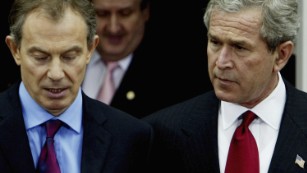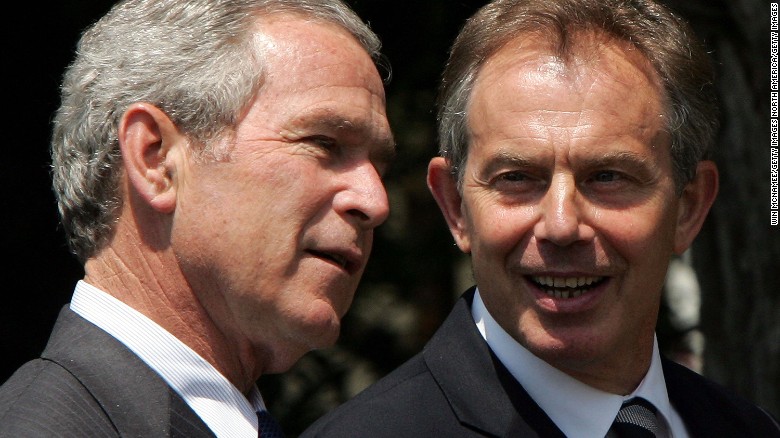After 13 years, Chilcot report delivers damning verdict on British role in Iraq War
In the face of fierce criticism from a British inquiry into the Iraq War, Tony Blair, Britain's leader at the time, says he will respond fully later Wednesday, but still believes "it was better" to topple Iraq's former dictator.
"I will at the same time say why, nonetheless, I believe that it was better to remove Saddam Hussein and why I do not believe this is the cause of the terrorism we see today, whether in the Middle East or elsewhere in the world," he said.
He said that the Chilcot report "should lay to rest allegations of bad faith, lies or deceit."
"Whether people agree or disagree with my decision to take military action against Saddam Hussein; I took it in good faith and in what I believed to be the best interests of the country."
He noted that the report had found that there had been "no falsification or improper use of intelligence," "no deception of Cabinet," and "no secret commitment" between Blair and then-U.S. President George Bush to go to war.
[Breaking news update at 7 a.m. ET]
"Military action in Iraq might have been necessary at some point, but in March 2003 there was no imminent threat from Saddam Hussein," John Chilcot, chairman of a British inquiry into the UK's role in the Iraq War, said Wednesday.
The "strategy of containment" could have continued for some time, he said.

Bush and Blair's war in Iraq
Speaking ahead of the release of the long-awaited report in London, Chilcot said former British Prime Minister Tony Blair was warned of the risks of regional instability and the rise of terrorism before the invasion of Iraq, but pressed on regardless.
The UK failed to appreciate the complexity of governing Iraq, and did not devote enough forces to the task of securing the country in the wake of the invasion, he said.
Blair's decision to invade Iraq was influenced by his interest in protecting the UK's relationship with the United States, he said.
That relationship "does not require unconditional support where our interests and judgments differ," said Chilcot.
The inquiry did not express a view on whether the invasion was legal, he said, arguing that that was a decision for another forum.
[Breaking news update at 6:30 a.m. ET]
John Chilcot, chairman of a British inquiry into the country's role in the Iraq War, said in releasing the report that Britain joined the invasion of Iraq "before the peaceful options had been exhausted," and that preparations for the aftermath were "wholly inadequate."
UK policy was based on "flawed intelligence and assessments," he said. "They were not challenged and they should have been."
Hindsight was not necessary to identify the risks of what would happen to the country post-invasion, he said: "The risks... were each explicitly identified before the invasion."
Furthermore, the legal basis for the war was "far from satisfactory," he said.
News Courtesy: www.cnn.com











